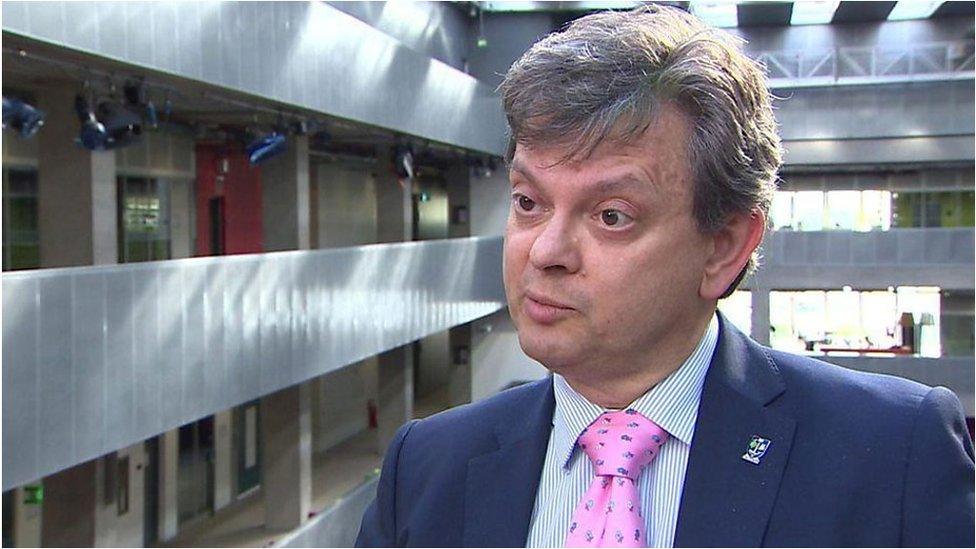Scotland's universities need 'shared national mission'
- Published

Prof Muscatelli is calling for a more focussed approach to public investment in research
Scotland's universities have been urged to collaborate more to contribute fully to Scotland's economic needs.
A report by Glasgow University's principal, external says there is a need to cut out duplication of effort and conflicting objectives.
Prof Sir Anton Muscatelli argues Scotland needs to use the scale of universities together.
He said this would help them have impact like Oxford, Cambridge and London colleges.
His report, commissioned by the Scottish government, says there should be a "shared national mission" of making Scotland's economy one of the most innovative in the world.
It makes the case for a more focused approach to public investment in research at universities, aimed at areas where Scotland has a competitive advantage over other nations and regions.
It also says that public funding should be directed towards areas of study that have the best chance of securing additional funds from elsewhere.
On the question of powers held at Holyrood, the Muscatelli report advises that Holyrood should have control over some aspects of immigration.
That extends to exploring the possibility of the Scottish government gaining some flexibility in tax incentives for research and development. Both are currently controlled through Westminster.

Scottish universities are described as a "success story"
The study raises the question of why so few women in universities take part in commercial spin-outs from universities. It says there should be more opportunities for academic careers to include some time spent in business, developing commercial opportunities.
The study was commissioned by Derek Mackay, the Scottish economy secretary, to look at ways in which universities can have a greater impact on the economy, growth and jobs.
The country scores among the top performing countries measured by the share of income that goes into public sector spending on research and development, much of that through universities. However, it counts among the poorest performers in research spending by business.
Economic driver
There have been numerous attempts over the past 30 years and more to get more commercial spin-offs from universities. While universities have increased efforts, as a whole, the sector continues to fall short of its potential.
Sir Anton commented that universities are already "a real success story for the country, making a huge impact on economic growth at home and punching well above our weight internationally".
"There is so much potential for our universities to contribute even more to our economy and our society," he said.
"We need to retake our place at the forefront of international innovation in emerging fields like precision medicine, quantum technology, financial technology and nano-fabrication."
Mr Mackay said ministers would respond over the coming year.
"Scotland's world-class universities are already a major economic driver and it is important we ensure they can continue to fulfil their significant potential," he added.